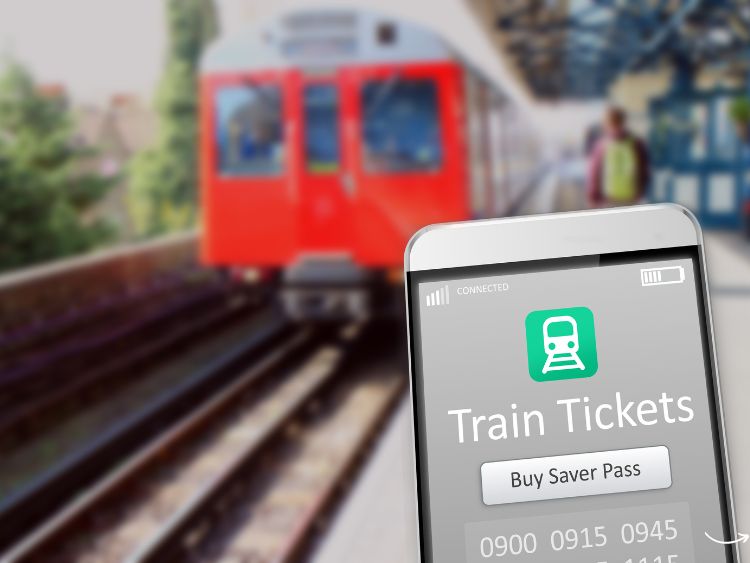Ever wondered about the daily life of a train ticket officer? These dedicated individuals ensure smooth travel experiences for countless passengers every day. In this article, we’ll delve into the world of train ticket officers, exploring their duties, challenges, and the unique skills they bring to their roles. Whether you’re considering a career in this field or simply curious about what goes on behind the scenes, read on for an in-depth look at the essential role of a train ticket officer.
Who is a Train Ticket Officer?
A train ticket officer, often referred to as a ticket clerk or booking clerk, is a vital member of the railway staff responsible for selling tickets, assisting passengers, and providing essential information about train services. These officers are the first point of contact for many travelers, making their role crucial in ensuring a positive customer experience.
Key Responsibilities of a Train Ticket Officer
Selling Tickets
The primary duty of a train ticket officer is selling tickets. This task involves:
- Using ticketing systems: Operating complex computer systems to issue tickets accurately.
- Handling cash and card payments: Ensuring transactions are processed smoothly.
- Explaining fare structures: Helping passengers understand various ticket options and pricing.
Providing Customer Service
Customer service is at the heart of a train ticket officer’s role. They must:
- Answer queries: Addressing questions about train schedules, platforms, and connections.
- Assist with special needs: Helping passengers with disabilities or those needing special assistance.
- Resolve complaints: Managing and resolving any issues or complaints that arise.
Ensuring Compliance
Train ticket officers also ensure that all operations comply with railway regulations. This includes:
- Checking tickets: Verifying that passengers have valid tickets.
- Monitoring ticket barriers: Ensuring only authorized individuals access the platforms.
- Reporting discrepancies: Notifying supervisors of any irregularities or fraudulent activities.
Skills and Qualities of an Effective Train Ticket Officer
Communication Skills
Excellent communication skills are essential. Officers must convey information clearly and courteously, often in busy or stressful situations.
Attention to Detail
Accuracy is crucial when issuing tickets and handling money. A keen eye for detail helps prevent errors and ensures passengers receive correct information.
Problem-Solving Abilities
Train ticket officers frequently encounter unexpected situations. The ability to think on one’s feet and resolve issues efficiently is invaluable.
Patience and Empathy
Working with the public requires a high degree of patience and empathy, especially when dealing with frustrated or confused passengers.
Challenges Faced by Train Ticket Officers
High Stress Environment
The railway station can be a high-pressure environment, especially during peak travel times. Officers must remain calm and composed under stress.
Dealing with Difficult Passengers
Not all interactions are pleasant. Officers often handle difficult or irate passengers, requiring excellent conflict resolution skills.
Keeping Up with Technology
Modern ticketing systems are sophisticated and frequently updated. Continuous learning is necessary to keep up with technological advancements.
Shift Work
Train services run around the clock, meaning ticket officers often work in shifts, including nights, weekends, and holidays.
A Day in the Life of a Train Ticket Officer
Morning Shift
- Opening Procedures: Starting the day by setting up the ticket booth, ensuring all systems are operational.
- Morning Rush: Assisting a large volume of passengers during the busy morning commute, managing queues, and providing information.
- Administrative Tasks: Completing necessary paperwork, such as daily sales reports and inventory checks.
Afternoon Shift
- Customer Assistance: Continuing to assist passengers, often dealing with more leisurely travelers or tourists.
- Ticket Inspections: Occasionally stepping away from the booth to inspect tickets on platforms and trains.
- Breaks and Rotations: Rotating with colleagues to ensure continuous service while allowing for regular breaks.
Evening Shift
- Evening Commute: Managing another surge of passengers as people return home from work.
- Closing Procedures: Balancing the till, securing cash, and shutting down the ticketing systems.
- Reporting Issues: Notifying supervisors of any incidents or irregularities encountered during the shift.
FAQs About Train Ticket Officers
What qualifications do you need to become a train ticket officer?
Typically, a high school diploma or equivalent is required. Additional customer service experience or qualifications can be beneficial.
How much does a train ticket officer earn?
Salaries vary by location and experience but generally range from $25,000 to $40,000 per year.
Are there opportunities for career advancement?
Yes, train ticket officers can advance to supervisory or managerial positions within the railway industry.
What are the working hours like?
Train ticket officers often work in shifts, which can include nights, weekends, and holidays.
What skills are most important for a train ticket officer?
Key skills include excellent communication, attention to detail, problem-solving abilities, and strong customer service skills.
Conclusion
Train ticket officers play an indispensable role in the railway industry, ensuring passengers have a smooth and pleasant travel experience. Their day-to-day duties are varied and challenging, requiring a unique set of skills and qualities. By understanding the responsibilities and challenges of a train ticket officer, we can better appreciate the vital work they do to keep our trains running smoothly. Whether you’re considering a career as a train ticket officer or simply curious about their role, we hope this article has provided valuable insights into this essential profession.

